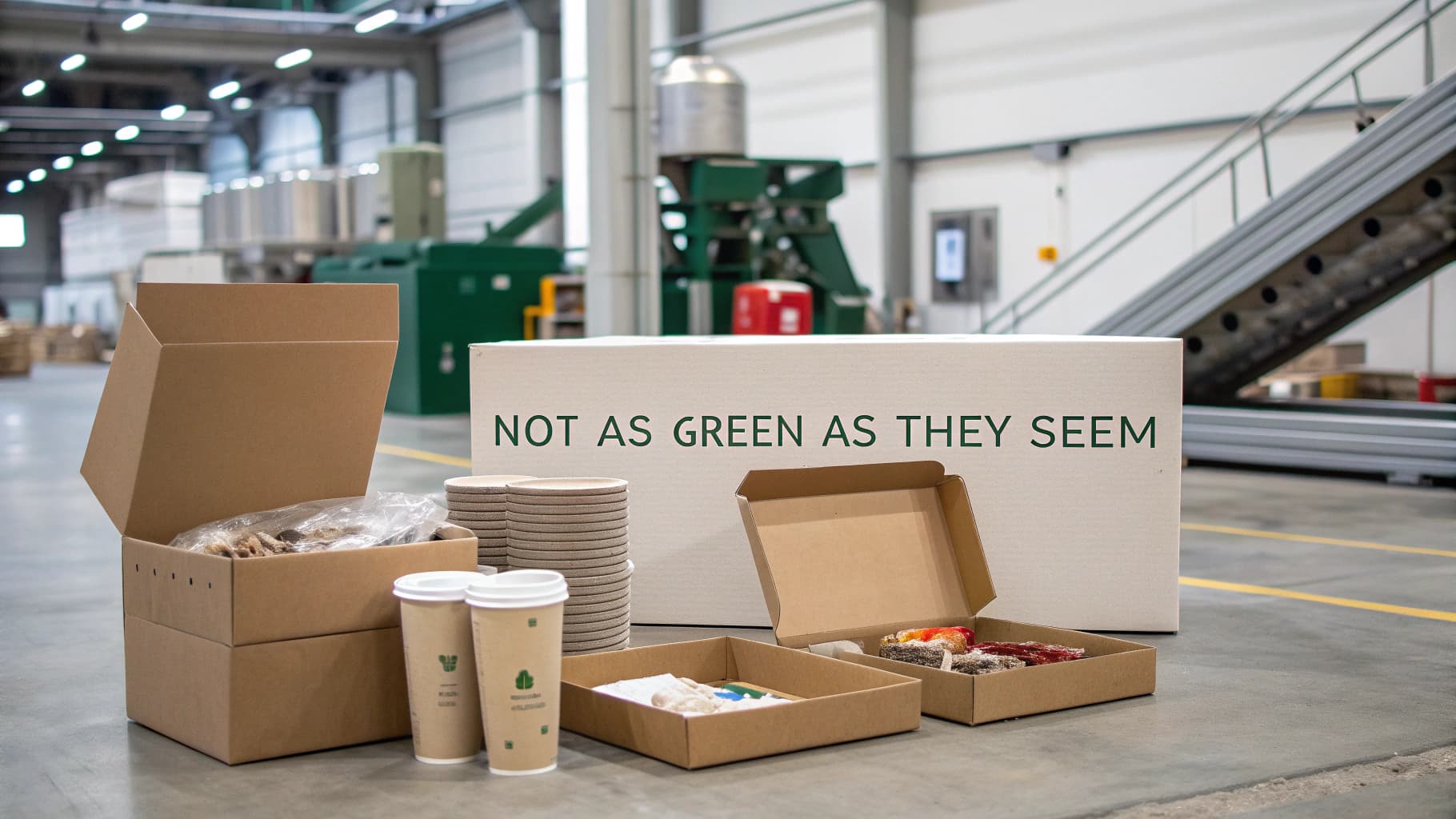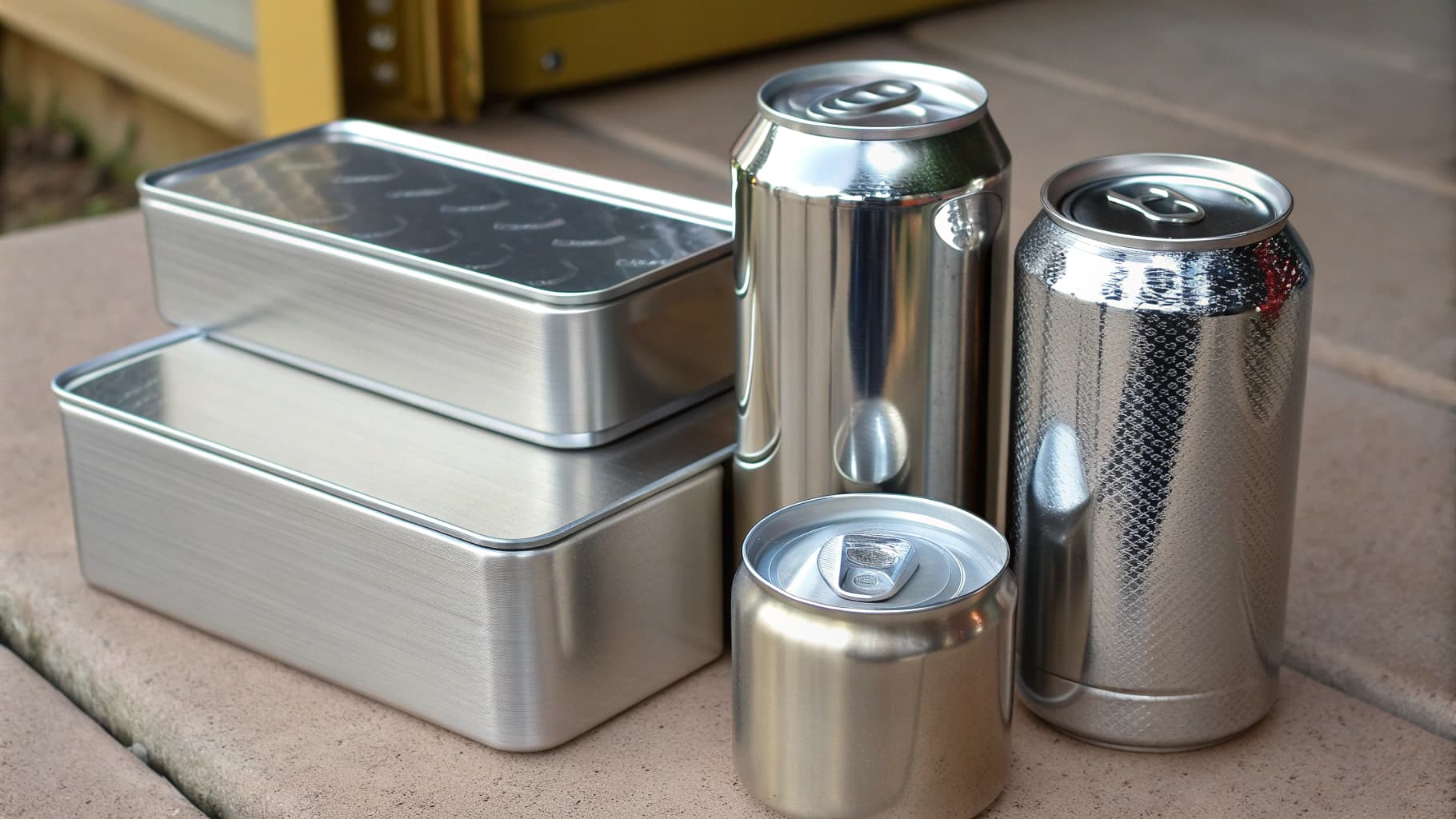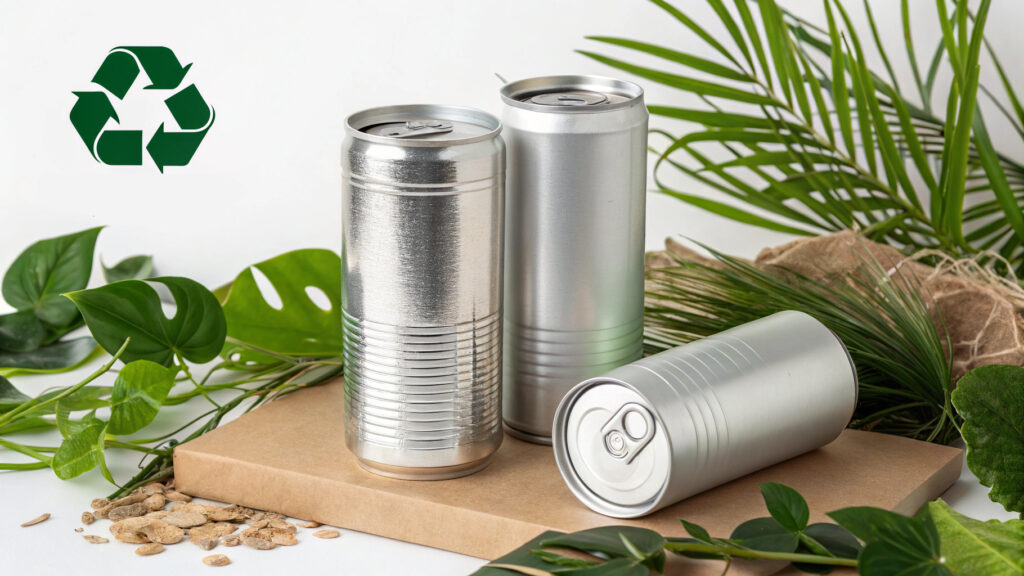In today’s environmentally conscious world, packaging choices have significant implications for our planet’s health. As consumers and businesses seek greener alternatives, understanding the environmental impact of different packaging materials becomes essential. This article explores various packaging options, with a focus on why metal cans represent one of the most sustainable solutions available today.
The Environmental Impact of Common Packaging Materials
Plastic: Convenience at a Cost
Despite its versatility and lightweight properties, plastic packaging presents serious environmental challenges:
- Only 13.6% of plastic packaging is recycled globally
- Nearly 70% ends up in landfills
- Plastic can persist in the environment for hundreds of years
- Production relies on non-renewable fossil fuels
Microplastics from degrading packaging have been found in oceans, drinking water, and even human bloodstreams, creating concerns beyond simple waste management.
Paper and Cardboard: Not as Green as They Seem

While paper packaging enjoys a positive environmental reputation, it comes with its own set of issues:
- Production requires significant water resources
- Many paper products contain chemical treatments
- Poor performance in wet conditions leads to product waste
- Despite high recycling rates (80.9%), production remains resource-intensive
Paper’s biodegradability offers advantages over plastic, but its production footprint and limited moisture resistance present significant drawbacks for many applications.
Wood Packaging: Traditional but Limited
Wood packaging offers natural appeal but faces several limitations:
- Only 27% of wood packaging is recycled
- Often requires chemical treatments to prevent rot
- Limited barrier properties against moisture and contaminants
- Heavier weight increases transportation emissions
Metal Packaging: The Superior Sustainable Solution
Metal cans stand out among packaging options for their exceptional environmental profile and product preservation capabilities. Their benefits extend from production through recycling:
Environmental Advantages
Metal packaging offers remarkable sustainability benefits:
- Infinite Recyclability: Unlike most materials, metal can be recycled indefinitely without quality loss
- Energy Efficiency: Recycling aluminum saves 95% of the energy required for virgin production
- High Recycling Rates: Metal packaging achieves some of the highest recycling rates globally
- Zero Microplastic Generation: Metal doesn’t break down into harmful microparticles
- Resource Conservation: Recycling reduces demand for raw material extraction
Superior Product Preservation
Beyond environmental benefits, metal packaging excels at preserving product quality:
- Complete protection against light, oxygen, and moisture
- Extended shelf life significantly reduces food waste
- Maintains nutritional integrity and flavor profiles
- Temperature resistance for various processing methods
- Chemical stability prevents interactions with contents
Metal Packaging: Now Accessible to All

One of the most exciting developments in sustainable packaging is that metal cans are no longer exclusive to large manufacturers. Thanks to innovative systems like iKAN and Fenix, businesses of all sizes can now access professional-quality canning solutions.
Small craft breweries, coffee shops, and restaurants can now package their products in environmentally friendly metal cans without massive investment or facility requirements. These modern systems bring professional canning capabilities to operations of all sizes:
- The iKAN Canning System offers production capacity of up to 10 cans per minute in a compact 44 x 18 x 35 cm footprint
- Fenix Packaging Solutions provide precise filling for various beverages with counter-pressure capabilities for carbonated drinks
- Both systems feature food-grade stainless steel construction for product safety and quality
These innovations democratize access to sustainable packaging, allowing even small producers to contribute to environmental protection while enjoying the quality and marketing benefits of professional metal packaging.
Comparative Analysis: Why Metal Outperforms Alternatives
When comparing packaging options across key sustainability metrics, metal consistently demonstrates superior performance:
| Criteria | Metal | Plastic | Glass | Paper/Cardboard |
| Recyclability | Infinite | Limited (degrades) | Infinite | Limited cycles |
| Recycling Rate | Very high | 13.6% | Moderate | 80.9% |
| Moisture Protection | Excellent | Good | Excellent | Poor |
| Light Protection | Complete | Variable | Good | Poor |
| Food Preservation | Excellent | Good | Excellent | Poor |
| Resource Efficiency | High when recycled | Low | Moderate | Moderate |
Small Business Success with Modern Canning
The accessibility of systems like iKAN and Fenix has opened new possibilities for small businesses across various industries:
- Craft breweries can package their products professionally without massive investment
- Coffee shops can offer ready-to-drink beverages with extended shelf life
- Restaurants can package signature sauces or cocktails in durable, recyclable containers
These modern canning solutions provide the perfect balance of quality, efficiency, and affordability. With minimal training required, staff can quickly master these user-friendly systems to produce professionally packaged products.
For businesses interested in exploring these sustainable packaging options, more information about iKAN, Fenix, and other innovative solutions is available on our partners page.
Conclusion: Choosing Metal for a Sustainable Future
As environmental challenges grow, packaging choices have never been more important. Metal cans offer a truly sustainable solution through their infinite recyclability, superior preservation properties, and reduced environmental impact.
The accessibility of modern canning systems means businesses of all sizes can now participate in the sustainable packaging revolution. By choosing metal packaging, companies not only protect their products but also contribute to environmental protection and meet growing consumer demand for sustainable options.

